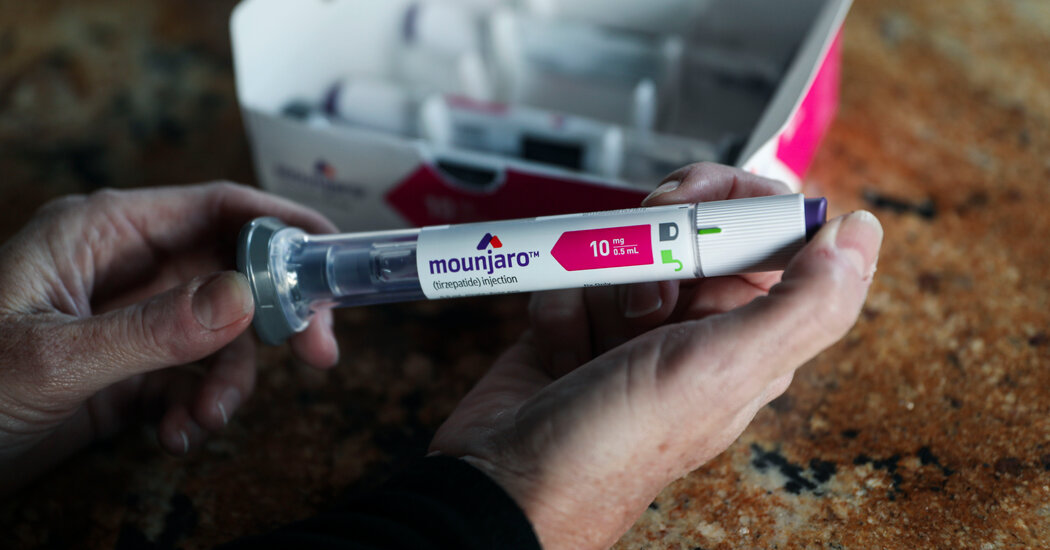The change will expand access to the diabetes and weight-loss drugs. But it will also complicate the future of compounded versions of the medications.
The Food and Drug Administration on Wednesday declared an end to the two-year shortage of tirzepatide, the substance in the popular weight-loss medication Zepbound and the diabetes drug Mounjaro. The end of the shortage means that far more people could soon be able to access the brand-name drugs. But it is also certain to disrupt the big business of compounded weight-loss drugs, forcing many patients to give up the cheaper copycat medications that are allowed to be manufactured when brand-name drugs are in short supply.
Many people have not been able to get their hands on the brand-name medications since 2022, shortly after Mounjaro was first introduced in the United States. Demand for the drug was so great that it quickly went into short supply. That drove patients to seek out alternatives from compounding pharmacies — which, during shortages, can create their own versions of medications that do not have to be approved by the F.D.A. By some estimates, millions of Americans have taken compounded weight-loss and diabetes drugs.
Now that the shortage is resolved, pharmacies must immediately stop preparing compounded copies of Mounjaro and Zepbound, said Scott Brunner, the chief executive of the Alliance for Pharmacy Compounding.
“There are many, many, many more patients than normal who are relying on compounded copies of F.D.A.-approved drugs,” he said. “It’s those folks that are going to have to scramble.”
Compounding pharmacies have historically tailor-made drugs for patients with specific needs, like reformulating a pain reliever if someone is allergic to one of its ingredients. But they have taken on a far more prominent role as demand has soared for diabetes and weight-loss drugs. The interest in these compounded drugs has largely been fueled by upstart telehealth companies like Ro and Hims, which advertise access to them for hundreds of dollars less than the name-brand medications.
“Compounding pharmacies have been around for a long time, but there’s never been this confluence of this massive increase of telehealth providers after Covid-19 for a blockbuster drug,” said Timothy Mackey, a professor at the University of California, San Diego, who has studied the counterfeit weight-loss drug market.
